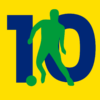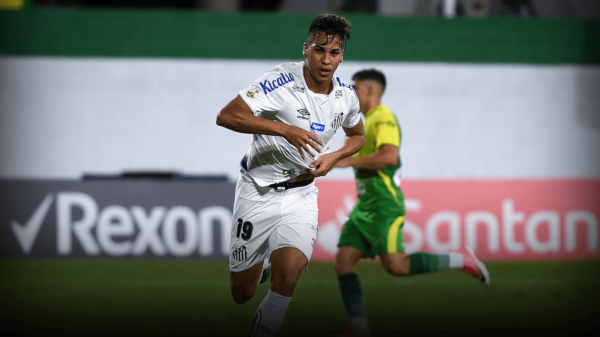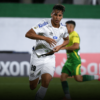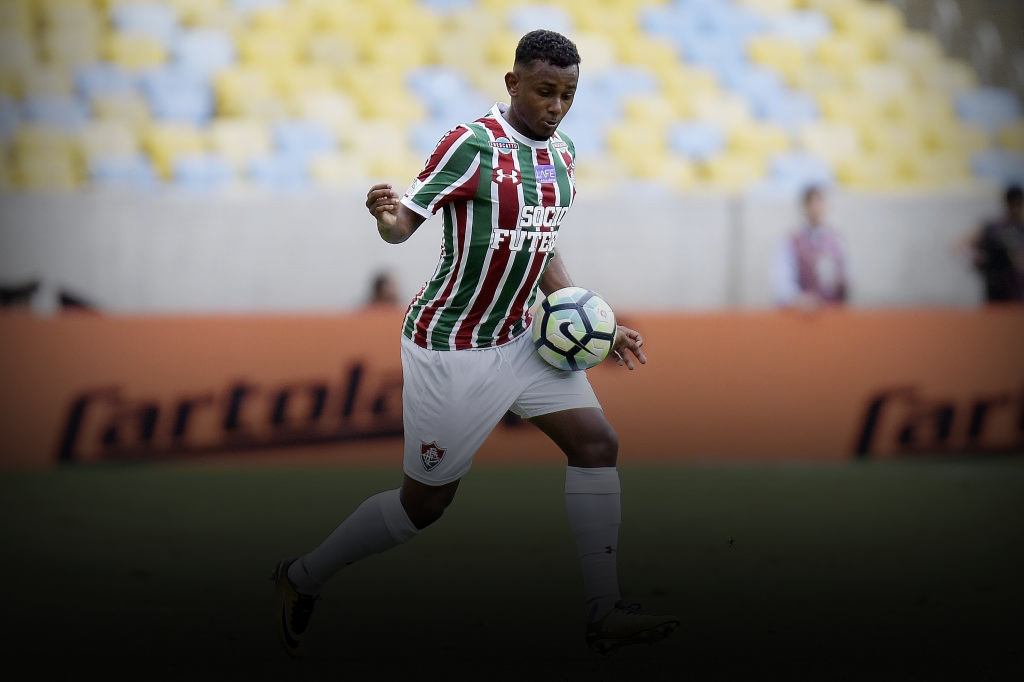One of the most adored players from across the world, Hulk has been under the radar a bit in the last few years, especially after his move to Zenit. The big man was blamed for Brazil’s World Cup exit, and struggled at club level too. A reunion with Andre Villas Boas seems to have done the trick, and Hulk seems to be on the rise again. Alex Blinston gives us the details.
I’ll get the cliche out the way early: Hulk really has been incredible this season. When Stan Lee created the Marvel character he certainly wouldn’t have expected the slogan ‘The Incredible Hulk’ to be applied to a Brazilian footballer, however, it epitomizes Hulk’s form this term and a Selecao career that had seemingly run its course is now back in full swing.
‘Shame. Grievance. Humiliation’ read O Globo after the 7-1 defeat to Germany last summer. After such an abomination, scapegoats will naturally be identified; one of them was Hulk, and rightly so. Hulk failed to record a goal or an assist at the World Cup and he was identified as one of the many incompetent performers.
Truth be told, Hulk has never fully endeared himself to those in his homeland. When you think of the Selecao’s most recent icons -whether that be Ronaldinho, Neymar or Robinho – all flourished in Brazil before making the familiar trip to the bright lights of Europe. Hulk was different.
Givanildo Vieira de Sousa was born in to a brutal neighbourhood in Campina Grande in the north of the country. Hulk was the football obsessed kid that dreamed of pulling on the gold and green, but a move to Japan was never likely at the forefront of a young Brazilians aspiration. However, in 2005, and still in his teens, Hulk made the switch to Kawasaki Frontale after just a handful of senior matches in his homeland.
Much like his namesake, Hulk was dominant, bulldozing his way through enemies in Japan. In the J. League he was predictably dominant with 63 goals in 83 games with Consadole Sapporo and then Tokyo Verdy. After three years it was evident that Hulk had outgrown Japan and a new challenge was required; to link it to the superhero, he had grown so large that he had ripped the shirt and a new one was now needed.
So in came a club renowned for developing rough diamonds in to crown jewels: Porto. The Portugese giants purchased 50% of Hulk’s player rights – Brazilian transfers are often complex due to third-party investors – for around £5 million. Boy what a coup that was.
His first season in Portugal proved to be a fruitful one yielding eight goals and nine assists in all competitions as Porto went on to complete a domestic double, as Hulk earned his first international caps in the process. In the 2010/11 season, under the guidance of one of Europe’s brightest young coaches, Andre Villas-Boas, Porto went on to complete a treble (Primeira Liga, Taca de Portugal and Europa League) with Hulk and Radamel Falcao combining for 74 goals in all competitions. However, all good things come to an end as Falcao upped sticks for Atletico Madrid and Villas-Boas got his big break with Chelsea; Hulk now wanted his move.
Chelsea, Tottenham Hotspur and Monaco were all rumoured landing spots, the former reported as a ‘done deal’ on numerous occasions. It was Russian money that would finance the Hulk transfer, but instead of Roman Abramovich, it was the Gazprom powered Zenit who shelled out €60 million on Hulk in 2012.
He made the move to Russia on the back of a disappointing Olympic campaign with the Selecao. It was a competition that Brazil were eager to win – their squad was the strongest by some distance – but they had to settle for a silver medal, being pipped to the middle podium by Mexico. Hulk’s ordinary displays carried through to his first season in St. Petersburg as he accrued just seven goals and five assists and only six months into his life in Russia, Hulk was angling for a move away.
Zenit’s ‘ultras’ (Landscrona) wrote to the club demanding that they wouldn’t sign black or gay players, stating that black players only ‘draw out a negative reaction.’ Long standing Zenit players Alexsandr Kerzhakov and Igor Denisov demanded that they were rewarded with new and improved contracts in the wake of Hulk and Axel Witsel’s signings on extortionate wages ,and there was a reported falling out between Hulk and Italian manager Luciano Spalletti. It certainly wasn’t plain sailing. While Hulk began to deliver on an individual basis at least – he scored 17 league goals in his second season in Russia – there was still a great deal of discontent towards Hulk in St. Petersburg as he failed to deliver a major trophy.
While Hulk had largely flourished in Europe, he still failed to garner an apt level of recognition back home. While the Russian league was – at the time at least – on the rise, there was a sense that he had stepped from the shadows of the Primeira Liga and in to the darkness of the Russian Premier League, a division that receives little attention from abroad. Those back home simply didn’t appreciate Hulk, there was a sense that he wasn’t ‘one of them’ and a big World cup was certainly needed. Instead, Hulk was one of the notable underachievers, rarely showing his true quality and when Dunga was appointed, Hulk lost his place, not just in the starting XI, but the squad all together.
In 2014 Andre Villas-Boas arrived at Zenit tasked with first reclaiming domestic domination, then success in Europe. The Hulk-Villas-Boas partnership that had reaped such great rewards in Portugal only blossomed last term as Zenit completed the domestic double. Hulk won the golden boot with 15 and led the league in successful dribbles (81), however, Zenit exited the Champions League at the first knockout stage; should a €60 million player lead his side further?
Well Hulk has answered emphatically this term. Zenit are powering through the Champions League group stage with relative ease and Hulk has been the catalyst. Four games, four wins and ten goals mean Zenit are the only team in the competition with a 100% record and qualification has been secured. While Artem Dzubya leads the Zenit side in goals (4) it has been Hulk who set the tone, providing Zenit with snap, crackle and pop.
Hulk leads Zenit in key passes (12), successful dribbles (18) and shots (15). While domestic form has plummeted – Zenit are ten points adrift from leaders CSKA Moscow – it isn’t due to a lack of effort from Hulk who has accrued seven goals and 11 assists and leads the league in a myriad of categories (shots, key passes, dribbles, key passes and accurate crosses.)
Hulk is largely deployed from the right flank but it is thriving with a free-roaming role under Villas-Boas. He’ll pop up with a cross from the left, cut in from the right flank and unleash a ‘Hulk-smash’ or pop up through the middle to provide the defence splitting pass. He’s a new beast this season and the Selecao, as well as Zenit could prove to be the beneficiaries.
Hulk failed to appear in either of Brazil’s recent World Cup qualifiers, however, against Argentina Ricardo Oliveira flattered to deceive and in the 3-0 win over Peru, Dunga opted to deploy his side without a recognised striker. The opportunity is there for Hulk. His two goals against Costa Rica and USA in September were evidently not enough to reward him with a starting berth; however, if Hulk can carry this form through till next year then he will make himself a hard man to ignore.
With 45 caps to his name, you’d expect Hulk to have been a key figure for Brazil but it simply hasn’t been the case. Now 29-years-old Hulk is in the form of his life, and now is his time to wreak havoc in the gold and green.
Written by Alex Blinston
- Forever Underrated: Edin Dzeko has turned it around in Rome - April 18, 2017
- Werder Bremen: Impressive Business yet sinking feeling? - September 7, 2016
- Talent Radar: Serie A 10 Young Players (U-19) to Watch in 2016-17 - August 25, 2016



























































